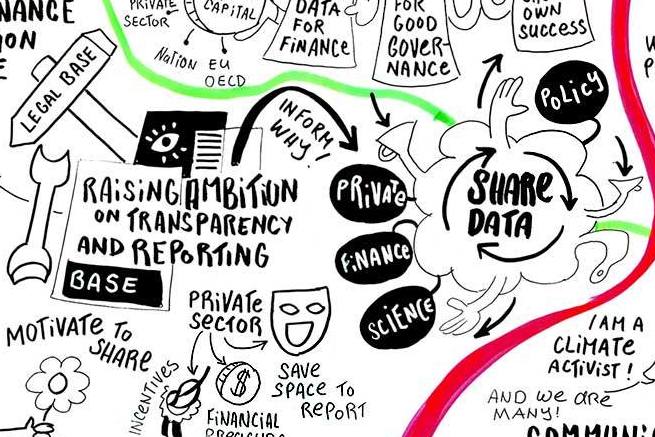
The second day of the Global NDC Conference 2019 drew attention to the importance of private sector business and finance as key partners in the delivery of the NDCs.
Business like other stakeholders wants to play a part in the delivery of the Paris Agreement. Business and finance leaders may have little understanding or engagement with the NDC but they are critical to its implementation and financing. Many global corporations have adopted the Sustainable Development Goals (SDGs) and many appreciate the risks and opportunities around climate change. Some have set Science Based Targets including emissions reductions targets and many more have agreed to disclose information about their climate and sustainability related performance.
Over 7,000 companies provide information on their performance via the Carbon Disclosure Project (CDP) and 650 investors with global assets totalling US 87 trillion are requesting data on climate, water and forest related issues. There is no doubt that business is committed and it’s a part of the solution to climate change.

But what policy is conducive to business taking progressive action on climate? Clarity, confidence and coordination from and with government policy are some of the key needs for private sector commitment. Private sector representatives at the conference from CMIA, CDP, We Mean Business, Ricardo Energy and Eco Ltd all emphasised the need for a coherent policy framework that could build trust, reduce risk and catalyse the flow of finance. Progressive and forward leaning business normally prefers clear regulations over uncertainty.
Finance from domestic sources both public and private is critical to NDC implementation and examples were presented of how important it is to involve key financial actors in policy development. The challenge of climate change is economy wide and urgent.The needs so large that bringing key private sector stakeholders into the development of the NDCs is likely to accelerate action.
The close involvement and symmetry between national policy development across 20 countries for electric vehicles and investment decisions by 20 global car manufacturers is an example. Dialogue, well facilitated by intermediary organisations among public and private entities can help to deliver these changes.
Get this right and a positive synergy between government-led policy and private-led investment has the potential to accelerate action, as set out in We Mean Business’ Ambition Loop. Given diverse contexts, the starting point may be either government policy or business actions but they need to connect through dialogue to raise ambition.
Practical examples of private sector engagement in the NDCs exist but a specific example comes from the Climate Finance Accelerator – a programme seeking to bridge policy and finance practice and development of term (investor) sheets. As part of this, partnership between a global bank and the Nigerian renewable energy authority has led to USD 500 million in clean energy projects. This is a valuable contribution towards bridging the NDC investment gap in the region. Throughout this week’s Global NDC Conference, practical real life examples of NDC implementation illustrate how much work is underway. Scaling these opportunities to the pace of climate change through inclusive partnerships has the potential to raise current and future NDC ambition.


